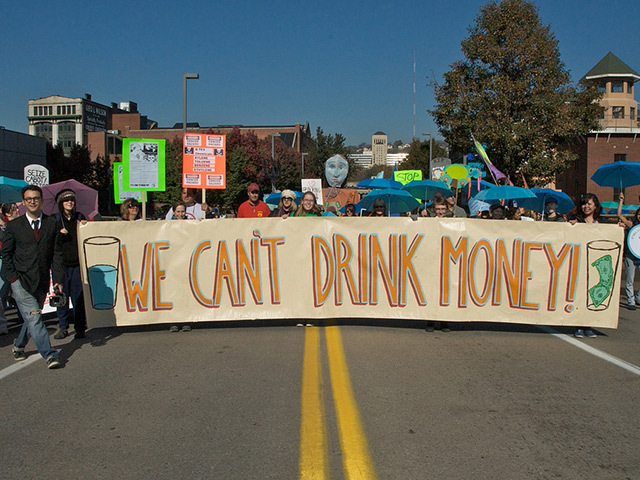
Fracking has been blamed for dangerous levels of radiation found in an American river, according to new research.
Scientists at Duke University found water discharged into the Blacklick Creek, which links into a water source for Pennsylvania residents, contained 200 times the normal levels of radium.
The report, published in the Environmental Science and Technology journalism, found the water came from a treatment facility 45 miles east of Pittsburgh that treats waste water from oil and gas drilling.
Anti-fracking campaigners have regularly claimed that the process causes damage to water sources, with much of the fluid forced into the ground to shatter rock and free trapped gas returning to the surface in a contaminated state.
“Our findings indicate that disposal of wastewater from both conventional and unconventional oil and gas operations has degraded the surface water and sediments,” said the study’s co-author, Nathaniel Warner.
“This could be a long-term legacy of radioactivity.”
Radium, along with salts including bromide, were found in far higher concentrations downstream of the plant than upstream. Although bromide in itself is not toxic, it can combine with chemicals used in water treatment to produce compounds that cause cancer.
However, industry group the Marcellus Shale Coalition said the Duke University study relies on outdated data.
“It is unfortunate that the researchers and funders of this study either did not know or would not acknowledge that the shale industry has not taken flow-back water to this treatment facility, or any similar facility in Pennsylvania, since May 2011, which underscores the outdated nature of the data used for the report,” said spokesman Patrick Creighton.